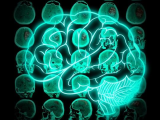Jul 27, 2010
Third of health workers wouldn't work in severe pandemic
A survey exploring hospital employees' willingness to work during an influenza pandemic found that 28% would stay home if they weren't required to respond, according to a study in BMC Public Health. The survey, conducted January through March 2009 before the novel H1N1 virus emerged, included responses from 18,612 employees of Johns Hopkins Hospital. It was based on a Witte's Extended Parallel Process Model, which the authors said has been useful in understanding how public health workers might adapt to unknown risks. The survey found that 38% of the employees would be willing to work if required. One-third said they wouldn't respond in a severe pandemic setting. The rates were consistent across hospital departments, but about a third lower among nurses. The investigators wrote that significant gaps exist in employees' willingness to respond and that the findings suggest ways to foster willingness to work, such as
pre-event planning for home-based dependents and ensuring adequate supplies of personal protective equipment.
Jul 26 BMC Public Health abstract
Experiments suggest prions can arise spontaneously
For the first time, a research group has shown that infectious prions can arise spontaneously in normal brain tissue, according to findings to be published this week in Proceedings of the National Academy of Sciences (PNAS). The group, from Scripps Research Institute in Florida and University College in London, used the metallic surface of simple steel wires as a catalyst, which had earlier been shown to bind readily with prions and initiate infection, according to information from Scripps that appeared yesterday in eScience News. The group found that wires coated with uninfected brain homogenate could also initiate prion disease in cell culture, which was transmissible to mice. Charles Weissman, MD, PhD, coleader of the study, said some have speculated that the rare and random nature of prion diseases such as Creutzfeldt-Jakob disease lends support to the theory that prions can form spontaneously. He said the new study
offers experimental proof that they can and that the event is promoted by contact with steel surfaces. He added that an alternate explanation is that prions are normally present in brain tissue at undetectable levels and that the metal surfaces could have concentrated the prions so that they could be detected with the researchers' testing methods.
Jul 26 eScience News report
New polio vaccination push targets Afghan children
The World Health Organization yesterday launched a 3-day campaign in Afghanistan with the help of 20,000 volunteers and healthcare workers to vaccinate children against polio, the United Nations (UN) said yesterday in a press release. The campaign is part of an effort to reach nearly 8 million children by the end of the year. Afghanistan has confirmed 12 polio cases this year, most of them in the southern part of the country, where fighting has blocked healthcare access to about 100,000 children. In eastern Afghanistan, antigovernment forces have abducted 13 polio vaccination volunteers, but the campaign resumed after a security assessment. The UN said movements of people between polio-free and polio-endemic areas has also presented polio control challenges. The latest phase of the polio vaccination campaign will send volunteers door to door in five of Afghanistan's 34 provinces, targeting children under age 5.
Jul 26 UN press
release



















